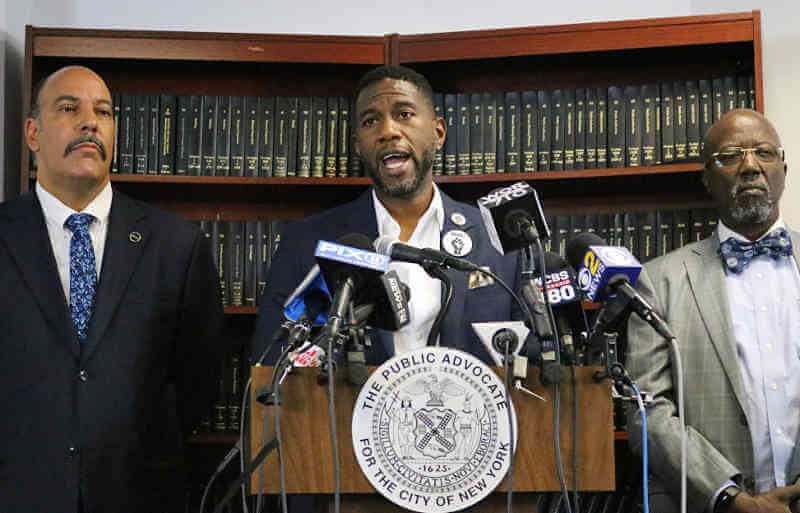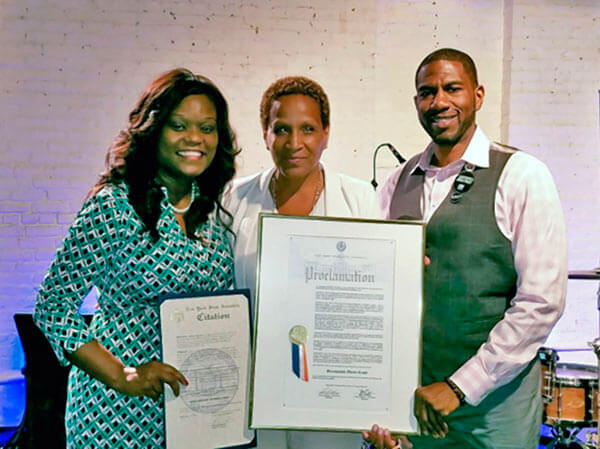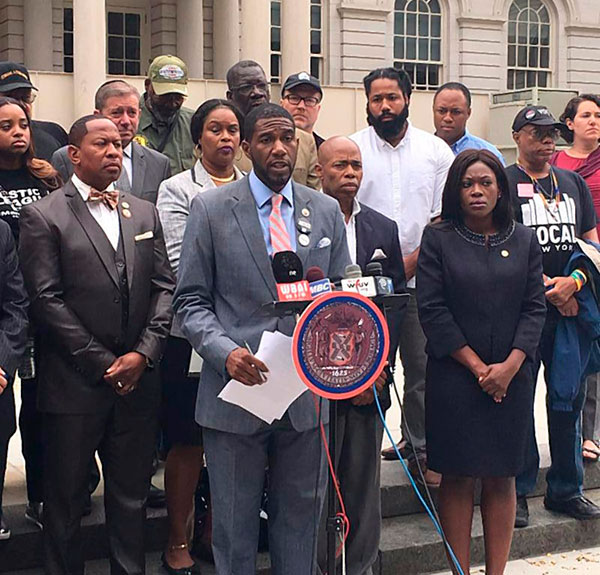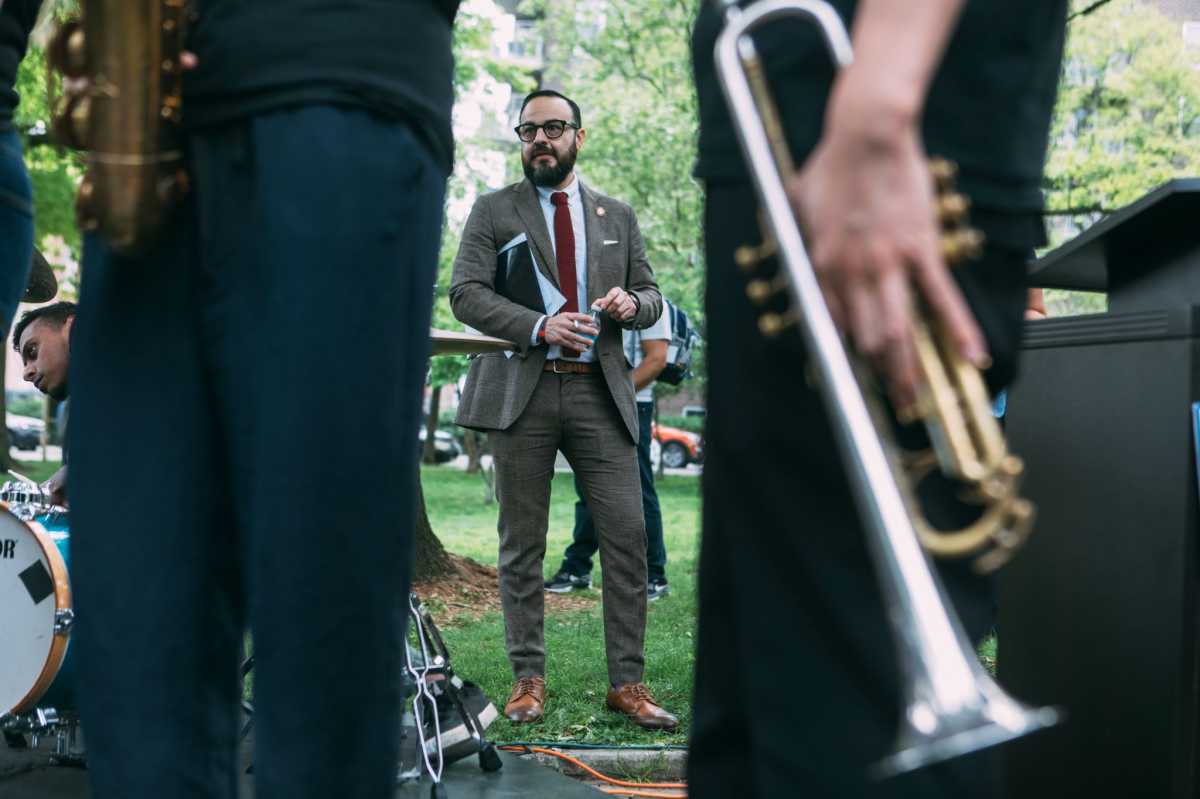With rents at historic highs and city staffing levels at some agencies at dramatic lows, New York City Public Advocate, Jumaane D. Williams on Wednesday, March 15 called for increases in income-targeted affordable housing production and increases in the number of inspectors for the Departments of Buildings (DOB) and of Housing Preservation and Development (HPD) as priorities in the city budget for Fiscal Year 2024.
At a hearing of the City Council Committee on Housing and Buildings, Williams highlighted the urgency of the housing and homelessness crisis in the city and several of the steps needed to address it.
“With a deteriorating housing stock and a worsening affordability crisis, preserving and building new income-targeted affordable housing in the city of New York is now more important than ever,” Williams said.
“As of February, the city’s homeless population reached a high of 77,000 people, a concerning number that coincides with the loss of thousands of rent-stabilized apartments in the city and loss of thousands of income-targeted affordable units as a whole,” he added.
The Public Advocate noted the urgent need for additional inspectors to identify and correct dangerous conditions in buildings citywide.
“Staffing the departments in charge of these programs is key,” he said pointing to a recent report by the Comptroller’s office that found, amid high vacancy rates, HPD only met 33 percent of its targets, the Office of Administration ranking as one of the units of appropriation with the highest vacancy rate across city agencies.
Williams supported efforts to convert commercial office space into residential units, emphasizing the need for deep, income-targeted affordability in that development.
“I urge the Council to pass Resolution 503, which calls for the conversion of commercial units to residential units,” he urged. “We have to make sure that affordability is key there, and that those neighborhoods have what they need to live comfortable lives.
“The creation of the Affordable Housing from Commercial Conversions (AHCC) tax benefit program would stimulate more funding for conversion projects, funding often cited as a key barrier to conversion efforts,” Williams added. “DOB staffing should be increased to move this process forward quickly and create new housing.”
As part of the effort to increase the safety and availability of housing, Public Advocate Williams also called for the legalization and regulation of converted accessory dwelling units.

























